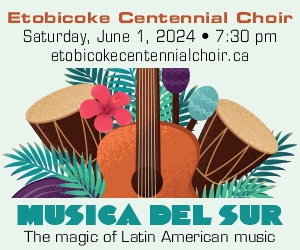Old Wine, New Bottles | Fine Old Recordings Re-Released - March 2015
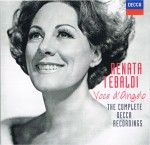 The treasured recordings of Renata Tebaldi that grace the collections of countless music lovers around the globe have been re-issued, all of them, in an omnibus edition in the now familiar cube issued by Decca (4781535, 66 CDs). These are not reissues from doubtful sources but from the archives of Decca itself, ensuring the very best sound of the original recordings.
The treasured recordings of Renata Tebaldi that grace the collections of countless music lovers around the globe have been re-issued, all of them, in an omnibus edition in the now familiar cube issued by Decca (4781535, 66 CDs). These are not reissues from doubtful sources but from the archives of Decca itself, ensuring the very best sound of the original recordings.
53 of the CDs contain 27 complete operas: Mefistofele, La Wally, Adriana Lecouvreur, Andrea Chénier, Cavalleria Rusticana, La Gioconda, La Bohème (1951 & 1959), La Fanciulla del West, Madama Butterfly (1951 & 1958), Manon Lescaut, Tosca (1951 & 1959), Turandot, Il Trittico, Aida (1952 & 1959), Un Ballo in Maschera, Don Carlo, La Forza del Destino, Otello (1954 & 1961) La Traviata and Il Trovatore. Also the Verdi Requiem (1951).
Included in the casts are Carlo Bergonzi, Jussi Björling, Mario del Monaco, Dietrich Fischer-Dieskau, George London, Luciano Pavarotti, Caesare Siepi, Marilyn Horne, Nicolai Ghiaurov, Regina Resnik… and the list goes on. Conductors include Karajan, Solti, Bonynge, Serafin and many others.
Also included are albums of Songs, Folk Songs, Opera Arias, Opera Duets, a Christmas album and Rarities.
Tebaldi’s recording career began in 1951 and ended with her retirement in 1973. Some operas were recorded twice giving us the opportunity to do the thing collectors do and compare the first Tebaldi to Tebaldi seven years on. Or just to enjoy hearing Tebaldi again and again. Complete casts and recording data are included but no librettos and translations.
To make it possible to easily locate a particular recording I suggest that the first thing to do is clearly copy the disc number, 1 through 66, on the top right-hand corner of the paper sleeve.
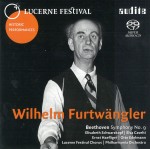 Wilhelm Furtwängler’s final performance of the Beethoven Ninth was in Lucerne on August 22, 1954 with the Philharmonia Orchestra, the Lucerne Festival Chorus and soloists Elizabeth Schwarzkopf, Elsa Cavelti, Ernst Haefliger and Otto Edelmann. Based on the original analogue tapes from the broadcasting archives, audite has produced an exemplary re-mastering (SACD 92.641). The rather dry acoustic exposes a lot more than the relatively murky 1951 Bayreuth Festival recording from EMI. The Philharmoniafrom London is heard here in its glory days, the tempos are familiar to Furtwängler’s devotees and absolutely everything fits together to perfection. From the first bars the superior sound of this new disc unzips all the nuances and dovetailing of instrumental colour. Furtwängler’s elemental vision of the third movement is singular. The forces are so inspired and well-rehearsed that the staggering difficulty of the fourth movement finale is achieved without any sense of effort; not at all easy in a live performance. This is consistent with and a perfect document of Furtwängler’svision of the Ninth and is an essential addition to an appropriate collection. Incidentally, the Tahra SACD issued in 2008 sounds to have been based on a later generation copy.
Wilhelm Furtwängler’s final performance of the Beethoven Ninth was in Lucerne on August 22, 1954 with the Philharmonia Orchestra, the Lucerne Festival Chorus and soloists Elizabeth Schwarzkopf, Elsa Cavelti, Ernst Haefliger and Otto Edelmann. Based on the original analogue tapes from the broadcasting archives, audite has produced an exemplary re-mastering (SACD 92.641). The rather dry acoustic exposes a lot more than the relatively murky 1951 Bayreuth Festival recording from EMI. The Philharmoniafrom London is heard here in its glory days, the tempos are familiar to Furtwängler’s devotees and absolutely everything fits together to perfection. From the first bars the superior sound of this new disc unzips all the nuances and dovetailing of instrumental colour. Furtwängler’s elemental vision of the third movement is singular. The forces are so inspired and well-rehearsed that the staggering difficulty of the fourth movement finale is achieved without any sense of effort; not at all easy in a live performance. This is consistent with and a perfect document of Furtwängler’svision of the Ninth and is an essential addition to an appropriate collection. Incidentally, the Tahra SACD issued in 2008 sounds to have been based on a later generation copy.
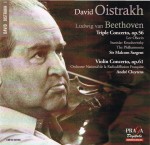 Another new SACD re-mastering from Praga of legendary performances features David Oistrakh playing Beethoven’s Violin Concerto and the Triple Concerto both licensed from EMI (PRD/DSD 350082 SACD hybrid). Neither recording is the first time Oistrakh was showcased in this repertoire but this was the first time he had recorded them in stereo. The soloists in the 1958 Triple were not strangers, being members of the David Oistrakh Trio, pianist Lev Oborin and cellist Stanislav Knushevitzky accompanied by the Philharmonia Orchestra under EMI’s house conductor, Sir Malcolm Sargent.The Violin Concerto, also from 1958, was recorded in Paris with the ORF Orchestra directed by André Cluytens. David Oistrakh’s various recordings of Beethoven and just about anything else remain landmarks and their value undiminished. The sound on this new production is cleaner, more spacious and detailed than the original stereo discs.
Another new SACD re-mastering from Praga of legendary performances features David Oistrakh playing Beethoven’s Violin Concerto and the Triple Concerto both licensed from EMI (PRD/DSD 350082 SACD hybrid). Neither recording is the first time Oistrakh was showcased in this repertoire but this was the first time he had recorded them in stereo. The soloists in the 1958 Triple were not strangers, being members of the David Oistrakh Trio, pianist Lev Oborin and cellist Stanislav Knushevitzky accompanied by the Philharmonia Orchestra under EMI’s house conductor, Sir Malcolm Sargent.The Violin Concerto, also from 1958, was recorded in Paris with the ORF Orchestra directed by André Cluytens. David Oistrakh’s various recordings of Beethoven and just about anything else remain landmarks and their value undiminished. The sound on this new production is cleaner, more spacious and detailed than the original stereo discs.
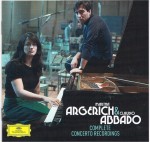 Martha Argerich & Claudio Abbado – Complete Concerto Recordings (DG 4794155): The first collaboration between Abbado and Argerichto be recorded by DG was in 1967 with the Berlin Philharmonic Orchestraplaying the Prokofiev Third Piano Concerto and the Ravel G Major. The last concerto in this inexpensive little 5CD box documents their last concert in March 2013 at the Lucerne Easter Festival playing the Mozart Piano Concertos No.20, K466 and No. 25, K503. In the intervening years DG recorded the Chopin Concerto No.1, the Liszt First Concerto and the Ravel G Major made during Abbado’s tenure with the London Symphony; the Tchaikovsky First with the Berliner and the Beethoven Second and Third Concertos with the Mahler Orchestra. In every case the performances are perfectly judged and persuasive, displaying both sensitivity and authority that serve the composers well.
Martha Argerich & Claudio Abbado – Complete Concerto Recordings (DG 4794155): The first collaboration between Abbado and Argerichto be recorded by DG was in 1967 with the Berlin Philharmonic Orchestraplaying the Prokofiev Third Piano Concerto and the Ravel G Major. The last concerto in this inexpensive little 5CD box documents their last concert in March 2013 at the Lucerne Easter Festival playing the Mozart Piano Concertos No.20, K466 and No. 25, K503. In the intervening years DG recorded the Chopin Concerto No.1, the Liszt First Concerto and the Ravel G Major made during Abbado’s tenure with the London Symphony; the Tchaikovsky First with the Berliner and the Beethoven Second and Third Concertos with the Mahler Orchestra. In every case the performances are perfectly judged and persuasive, displaying both sensitivity and authority that serve the composers well.
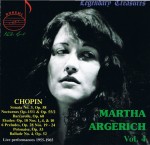 The welcome series of the young Martha Argerich on Doremi has arrived at Volume Four (DHR-8036) containing items from the 1965 Seventh International Chopin Competition in Warsaw of which Argerich was the First Prize winner. By 1965 Argerich had already won the first prize at two other international competitions in Geneva and Bolzano. And she was already signed to a recording contract with DGG. These selections of award-clinching performances as recorded live from the Chopin Competition, presented in flawless sound, are valuable documents of the rising star. Works include the Third Sonata, a selection of Nocturnes, Etudes, Preludes, the Polonaise Op.53 and more. A bonus track is a very rare recording from Buenos Aires of the 14-year-old “lioness at the piano” playing the Etude, Op.10, No.1.
The welcome series of the young Martha Argerich on Doremi has arrived at Volume Four (DHR-8036) containing items from the 1965 Seventh International Chopin Competition in Warsaw of which Argerich was the First Prize winner. By 1965 Argerich had already won the first prize at two other international competitions in Geneva and Bolzano. And she was already signed to a recording contract with DGG. These selections of award-clinching performances as recorded live from the Chopin Competition, presented in flawless sound, are valuable documents of the rising star. Works include the Third Sonata, a selection of Nocturnes, Etudes, Preludes, the Polonaise Op.53 and more. A bonus track is a very rare recording from Buenos Aires of the 14-year-old “lioness at the piano” playing the Etude, Op.10, No.1.


